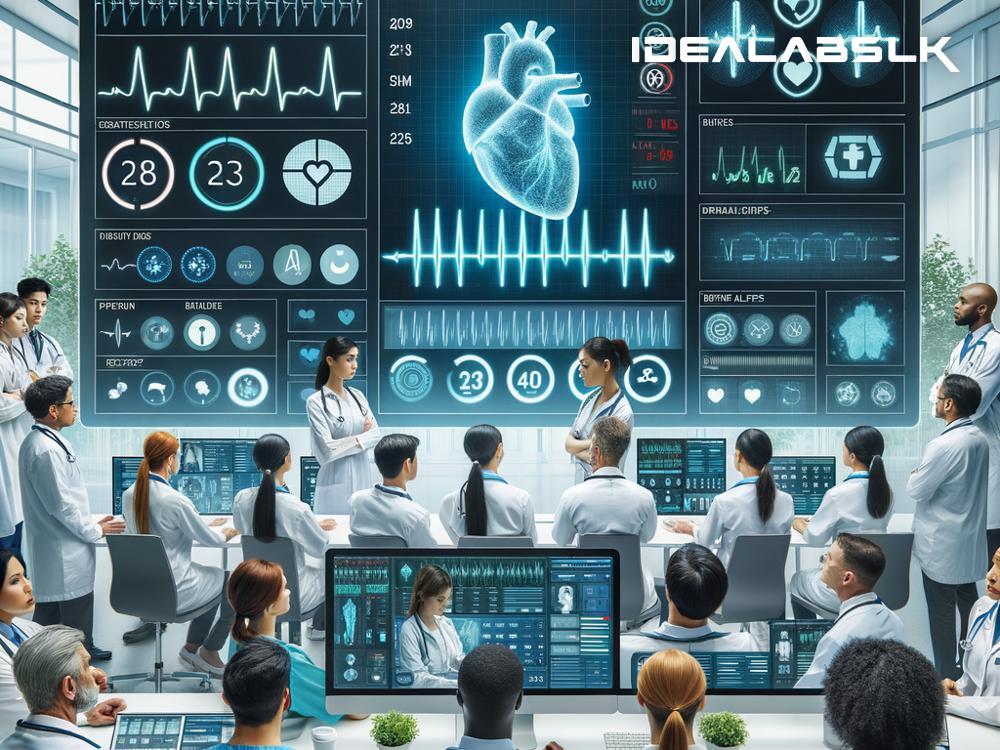How AI is Transforming Healthcare with Real-Time Patient Monitoring Systems
In the era of technological advancement, Artificial Intelligence (AI) is playing a pivotal role in transforming various sectors, and healthcare is no exception. Among the remarkable applications of AI in healthcare, real-time monitoring systems for patients stand out as a beacon of progress, offering a promise of improved patient care and outcomes. Let's delve into how AI is enhancing healthcare through these advanced monitoring systems, in a manner that's easy to understand and appreciate.
What is AI, and How Does it Relate to Healthcare?
At its core, Artificial Intelligence is the simulation of human intelligence in machines that are programmed to think and learn. In healthcare, AI is being used to create smart systems that can analyze data, recognize patterns, and make decisions, often in real-time, to assist healthcare providers and patients.
The Role of AI in Real-Time Monitoring Systems
Real-time monitoring systems, as the name suggests, track and analyze health parameters continuously. These systems have been given a 'brain' thanks to AI, enabling them to not only monitor but also predict and alert, which can be particularly life-saving in critical health scenarios.
1. Continuous Patient Monitoring
Gone are the days when patients needed to be in the hospital to be under observation. With AI-powered wearable devices and sensors, healthcare providers can now monitor patients' vitals, such as heart rate, blood pressure, and glucose levels, in real-time, regardless of their location. This advancement ensures that any potential issues can be identified and addressed promptly, dramatically increasing the chances of positive health outcomes.
2. Predictive Health Analytics
One of the most revolutionary aspects of AI in healthcare is its ability to predict health events before they happen. By analyzing data from multiple sources, AI algorithms can identify patterns and predict potential health issues, such as heart attacks or diabetic episodes, often before the patient is even aware. This predictive capability allows for timely interventions, which can be crucial in preventing severe health crises.
3. Tailored Healthcare
AI enables the personalization of patient monitoring and care by learning from each patient's unique health data. Over time, AI systems can understand what is 'normal' for each patient and tailor alerts and recommendations accordingly. This level of customization ensures that healthcare is more effective, as it is based on the individual's specific health profile.
4. Enhanced Communication
Real-time monitoring systems equipped with AI can also enhance communication between patients and healthcare providers. AI-powered apps and devices can alert healthcare teams about significant changes in a patient's condition, allowing for quick action. Moreover, these systems can provide patients with insights into their health, empowering them with information to make better health decisions.
5. Remote Monitoring and Telehealth
AI-driven real-time monitoring is a cornerstone of telehealth, enabling patients, especially those in remote or underserved areas, to receive high-quality care. Remote monitoring can reduce the need for hospital visits, which is particularly beneficial during times like the COVID-19 pandemic. Additionally, by easing the pressure on healthcare facilities, AI in real-time monitoring contributes to the overall efficiency of the healthcare system.
The Future is Now
The integration of AI in real-time monitoring systems is already making significant strides in improving healthcare delivery and patient outcomes. It represents a synergy between technology and healthcare that is not just futuristic but is happening now. As AI technology continues to evolve, we can expect these monitoring systems to become even more sophisticated, further revolutionizing healthcare.
Final Thoughts
The impact of AI on healthcare through real-time monitoring systems is profound. It's enhancing patient care by making it more proactive, personalized, and accessible. While challenges such as data privacy and the need for comprehensive AI regulation in healthcare remain, the potential benefits of AI in patient monitoring and overall healthcare are undeniable. As we continue to navigate this exciting intersection of technology and healthcare, one thing is clear: AI is not just altering the landscape of healthcare; it's setting the foundation for a healthier future for all.

